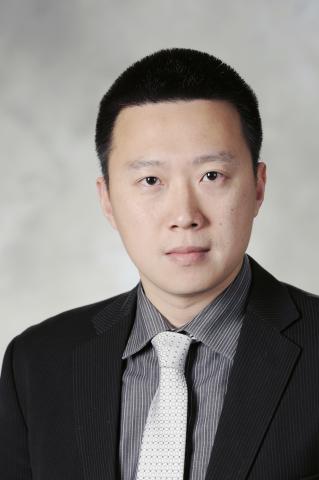ECE Assistant Professor Hua Wang has received a National Science Foundation CAREER Award for his project entitled “A CMOS Multi-Modality Cellular Interfacing Platform for Drug Screening and Stem Cell Culture.”
Hua Wang has received a National Science Foundation CAREER Award for his project entitled “A CMOS Multi-Modality Cellular Interfacing Platform for Drug Screening and Stem Cell Culture.” Wang will investigate CMOS cellular interfacing arrays with novel pixelated multi-modality sensors/actuators and will explore their use in transformative bioscience.
Wang holds the Demetrius T. Paris Junior Professorship in the Georgia Tech School of Electrical and Computer Engineering (ECE), where he leads the Georgia Tech Electronics and Micro-System Lab and is a member of the Georgia Electronic Design Center. Wang is interested in innovating and engineering mixed-signal, RF, and millimeter-wave integrated systems for wireless communication and bioelectronics applications.
Fully understanding the physiological behaviors of cells is necessary to further advance the frontiers in bioscience. At this time, existing sensors and actuators can only process electrochemical signals from cells. However, cells are highly complex systems that have numerous molecules operating in hundreds of pathways to maintain proper functions and phenotypes. At this scale of complexity, cells often undergo multi-physics responses all at once, which cannot be explored by single-modality platforms. This constraint poses a fundamental limit on the communication link between the electronics and cells/tissues. Many sensors and actuators also require exotic processing steps, limiting their cost, yield, and scalability in mass production.
To address these challenges, Wang’s NSF CAREER project focuses on innovating sensor/actuator technologies as large-scaled arrays with novel pixel-level multi-modality sensing/actuation functionalities. These microelectronics interfaces allow interrogating and stimulating living cells/tissues via multi-physics signaling at a high spatiotemporal resolution. Low-cost CMOS processes, widely used for manufacturing CPU and memory chips, will be employed to ensure high-integration, low-cost, and high-yield.
The proposed CMOS multi-modality cellular interfacing platform will lead to broad societal impacts. Capturing the complex cellular responses may substantially increase the throughput in drug development. As another example, real-time monitoring stem cells and enhancing the desired cell differentiation trajectories may drastically improve the purity in large-scale stem cell manufacturing and enable low-cost stem cell therapies. In addition, the cellular interfacing platform may serve as a novel research tool for new scientific discoveries.
